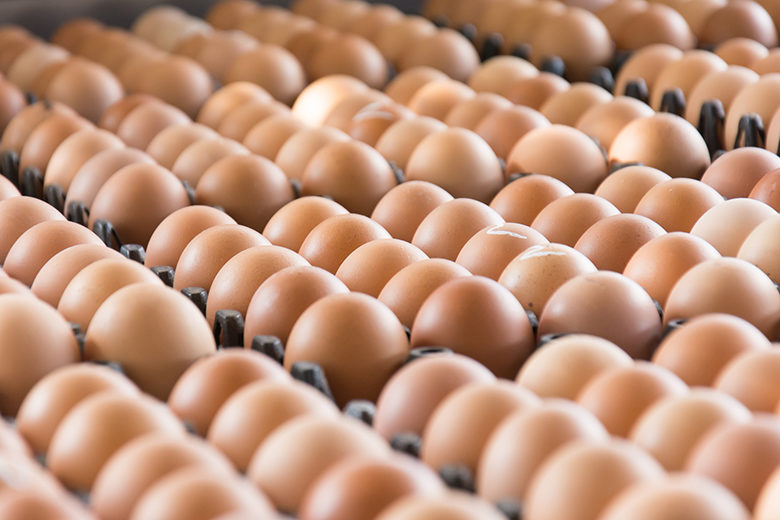
It seems like every time I lead a grocery store tour these days, I get asked what kind of eggs to buy. I know why consumers might be confused. The number of labels printed on eggs packaging has definitely exploded in the past few years. Moreover, many of these label terms aren’t even regulated, causing even greater confusion. So, with eggs receiving a great deal of positive media attention lately, I thought now would be a great time to clear up confusion about egg carton labels. ![]()
Egg Labels about What Chickens Eat
“Omega-3 Eggs”
What it means: The hens’ feed is supplemented with omega-3-rich oils such as fish oil, krill oil, flaxseed oil and algae oil. Each egg may have up to 250 milligrams of omega-3s per egg.
“Vegetarian Feed”
What it means: The hens’ feed is entirely vegetarian, meaning it is free of animal byproducts (defined as not suitable for humans) and usually composed of grains, soy and seeds. This diet ensures that chickens aren’t eating poultry byproducts, which they wouldn’t normally consume. However, keep in mind that chickens are not naturally vegetarians. If allowed to forage naturally, they eat a mixture of seeds, grains, bugs and worms.
Eggs Labels about Chickens’ Living Conditions
“Cage-Free”
What it means: The chickens are not kept in cages. Instead, they might be kept in a barn-like environment without access to the outdoors.
“Free-Range”
What it means: Chickens are not kept in cages and, generally, have some outdoor access. This outdoor access is not for any guaranteed amount of time, however.
“Pasture Raised”
What it means: Thought to be the gold standard, this label indicates hens had unlimited access to the outdoors, usually within in a confined area (however, there is no standard definition of a “confined area”). Some “pasture raised” chickens are kept in movable, floorless cages that allow access to the outdoors and pasture, but keep the chickens from roaming freely. Some “pasture raised” eggs have been found to have higher amounts of omega-3s, even though the hens were not given omega-3-supplemented feed.
Additional Egg Labels
“Fertile”
What it means: Instead of being segregated by sex, hens are allowed to mate with roosters. This means the eggs may contain both male and female genetic material, which begins the first step of embryonic development. However, the eggs do not develop further without continued incubation.
“Organic”
What it means: According to the USDA: “Eggs marked with the USDA’s National Organic Program label come from uncaged hens that are free to roam in their houses and have access to the outdoors. The hens are fed an organic diet of feed produced without conventional pesticides or fertilizers.”
Brown Eggs
What it means: There is no nutritional difference between brown and white — or any other color — eggs. The difference in color is determined by the breed of hen.
Grades: AA, A, B or Inedible
What it means: Defined by the USDA, these standards of quality are determined by the depth of the air cell, the firmness of the white, the definition of the yolk and the presence of impurities.
Size
What it means: This is defined by the weight of one dozen eggs:
- Small: 18 ounces
- Medium 21 ounces
- Large: 24 ounces
- X-large: 27 ounces
- Jumbo: 30 ounces
Which Egg Should You Chose?
Eggs deliver many nutrients, including protein, B vitamins, fat-soluble vitamins such as A, D, E and K, and important minerals such as zinc, iron and copper. No matter what the carton says, the general nutrition profile doesn’t change drastically between eggs (with the exception of the slight increase in omega-3s you find in omega-3 eggs and pasture-raised eggs).
So, instead of a choice based on nutrition, decide how you prioritize other factors such as cost, environmental concerns and animal welfare. Then, it’s up to you read the labels.
* This blog was adapted from an original post on on Kelli Shallal’s Hungry Hobby blog.






